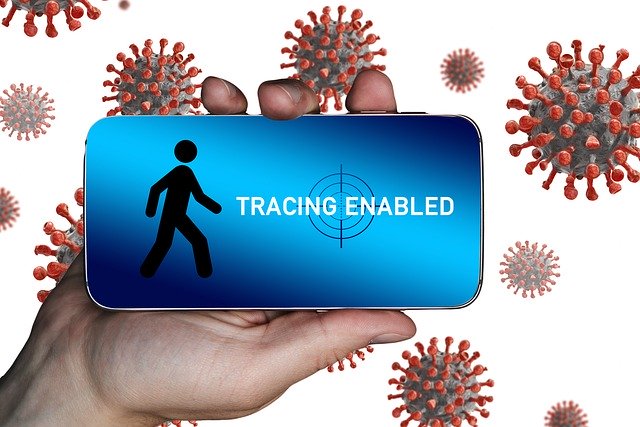
The UK Government launched the NHS Test and Trace service on 28 May 2020 in England and Scotland, with Wales following on 1 June; Northern Ireland already has its own system. However, there is one glaring omission: the smartphone app.
Although initially there was much fanfare about the production of an app by NHSX to track the spread of Covid and warn individuals who may have been exposed, following a pilot on the Isle of White this seems to have turned into a damp squib. Although Matt Hancock claimed that the delay in launching the app is not due to technical problems (Press Briefing, 27 May 2020, see 39 mins in), he seemed to imply that there was an issue related to compliance with instructions to isolate provided by an app as opposed to a human being.
How does the app work?
The NHSX app uses Bluetooth technology to monitor the distance between any two smartphones (which have the app installed and Bluetooth enabled) and the length of each encounter. If an individual (X) reports Covid symptoms via the app interface, the NHS will then notify other app users whose phones were detected as being in range of X, according to a “contact risk model”. These secondary app users will be asked to self-isolate for 14 days.
According to NHSX, the data collected by the app is anonymous (just a postcode is needed to install the app) and is only uploaded to their central database if a user gives them permission to do so (ie when they report symptoms). Otherwise, data is stored locally on the phone for 28 days and then deleted automatically.
Centralised vs decentralised approach
The NHSX app has been criticised for using a centralised system – unlike the decentralised contact tracing apps which use the Google and Apple software tool (the first of which has been launched by Switzerland). What this essentially means is that the NHS will have access to data pulled from the app which is stored on a central server.
In contrast, the apps based on the Google and Apple software tool will only store data locally (ie on the phones). The UK government argues that a centralised approach will provide epidemiologists with a better ability to track trends and apply local lockdowns if required, but privacy campaigners warn that holding sensitive data on citizens is dangerous, both from the perspective of civil liberties and cybersecurity.
It has been reported that NHSX is developing a second app which uses the Google and Apple technology – and it should also be noted that King’s College London has been running a Covid symptom tracking study with a different app.
Will it be effective?
Apps have been hailed as a crucial weapon in the fight against the spread of Coronavirus in countries such as China and South Korea. However, it is important to note that many of these apps rely on other forms of data collection such as GPS and QR codes – and these are sometimes used for purposes of general quarantine in areas with multiple suspected cases of Covid, as opposed to specific contact tracing.
Evidence for the effectiveness of Bluetooth contact tracing apps is not exactly overwhelming; although around 6 million Australians have downloaded the Covidsafe app, it only identified a grand total of one individual after a whole month of being operational. So the extent to which the NHSX app will help to reduce the spread of the virus remains to be seen.
Further reading
Wired: Everything you need to know about the NHS Covid-19 tracking app
NHSX: NHS COVID-19 App
Alex Heshmaty is technology editor of the Newsletter.